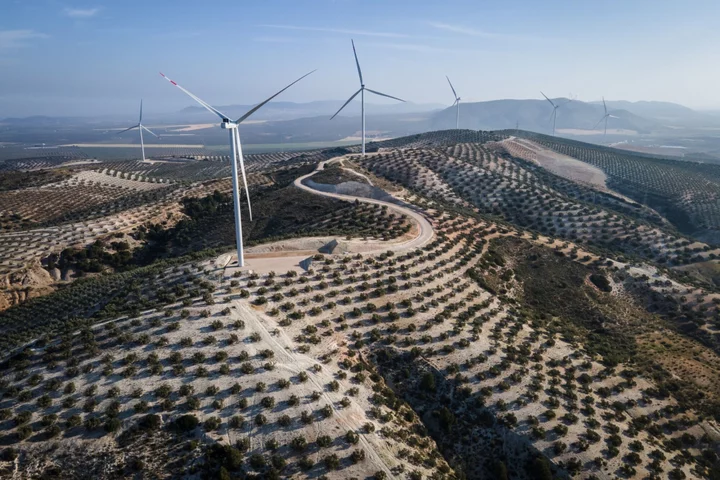Group of 20 nations will aim to triple renewable energy capacity by 2030 though also offered support to technology that can sustain the use of fossil fuels, easing concerns from Russia and Saudi Arabia that had previously stalled a deal.
Members will make a commitment to “pursue and encourage” efforts to meet the target to increase clean energy generation, according to people familiar with the negotiations.
The bloc will also call for a similar impetus in the deployment of abatement technologies like carbon capture that can reduce emissions from the use of gas, coal and oil, said some of the people, who asked not to be named as the details aren’t yet public.
Even so, the outcome offers some new momentum in the energy transition after global concerns over supply security and costs had begun to erode progress on a shift away from fossil fuels. It also hands a boost to G-20 host Narendra Modi ahead of the weekend summit in New Delhi and to the UAE, organizer of this year’s COP28 climate gathering, which had urged major nations to back the renewables plan.
A spokesperson for India’s renewable energy ministry declined to comment on the talks.
Discussions between G-20 energy ministers in July ended without agreement after Saudi Arabia and Russia, among the world’s largest fossil fuel exporters, blocked the proposed commitment to a tripling of renewables, German Economy Minister Robert Habeck said at the time.
Read more: G-20 Ministers Fail to Reach Consensus on Fossil Fuels, Russia
Some nations from the Middle East had called at those talks for the greater use of carbon capture or other abatement technologies to address emissions concerns, India’s power minister Raj Kumar Singh told reporters after that meeting.
Carbon capture technology aims to trap carbon dioxide released as fuels are burned at sites including power plants, with a goal of limiting the climate impact. Operations have struggled to overcome technical hurdles or reach large scale, and currently capture about 0.1% of global emissions annually. Climate campaigners deride the process as an excuse for oil giants to maintain output of fossil fuels.
Boosting renewable energy capacity is seen as crucial to help meet climate targets because power generation accounts for roughly a third of global emissions.
Despite record-setting adoption of solar and wind in China, and an acceleration in deployments across Europe and North America, the world remains deeply reliant on coal and gas for electricity. Coal consumption hit a record in 2022 and will remain at the same level this year, the International Energy Agency said in July.
--With assistance from Michael Nienaber and Alberto Nardelli.
Author: Rajesh Kumar Singh, Lou Del Bello and Jorge Valero

